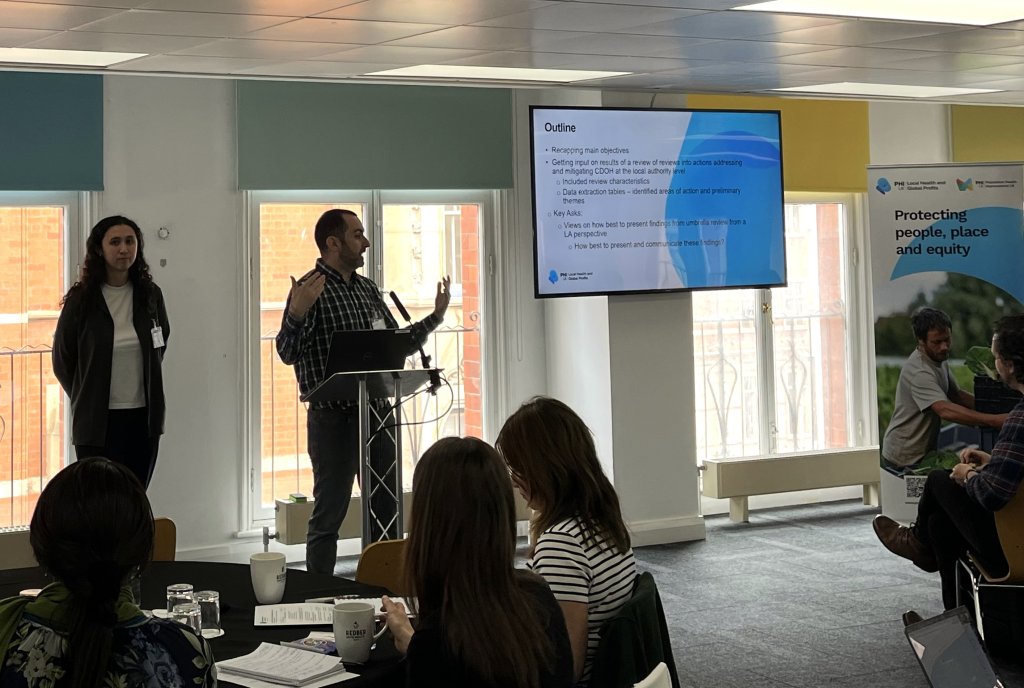PHI UK’s Local Health and Global Profits consortium hosted its annual meeting in Birmingham last week – sharing initial research findings on the commercial determinants of health. The event brought together over 60 researchers and public health professionals.
Research findings
At the meeting, researchers the Universities of Bath, Cambridge, Edinburgh, Sheffield and the London School of Hygiene and Tropical Medicine shared initial outputs from research to:
Identify and categorise actions to address the commercial determinants of health that negatively impact communities
Identify facilitators and barriers to action
Understand the tools and resources needed by local authorities to support action
Professor Anna Gilmore, Director, opened the event with an overview of the progress across the research consortium so far, with an ambition to take a solution-focused approach to the upstream determinants of health.
Deputy Director, Dr Nason Maani outlined the initial outputs of research to identify and categorise existing interventions. The research has identified over 500 interventions and the research team is engaging with practitioners to develop practical ways to share the data.
Early-career researchers Dr Amber van den Akker and Dr Nancy Karreman shared initial findings from an interview study with over 30 public health and local authority policymakers. The interview study looks at the facilitators and barriers to action on the commercial determinants of health.
Collaboration and practice sharing
A strong focus for the event was collaboration and practice sharing.
Liz Zeidler, Chief Executive of The Centre for Thriving Places led a discussion on what contributes to thriving communities. She outlined the importance of collaboration and engagement beyond traditional health decision makers, to ensure that supporting thriving communities is a common goal across all local policymaking and service delivery.
Peter Roderick, Director of Public Health for City of York Council shared examples of practice in action, from advertising and sponsorship policies in Sheffield and York to supplementary planning support like Newcastle City Council’s Healthier Food Environments document. Peter’s top tips for driving positive change locally were a useful take home for the audience.
Public health professionals from across England shared insights from their local communities. Through discussions and workshop exercises, groups contributed further thoughts on barriers and how to address them. Common themes that emerged included the need to engage across a range of teams and disciplines, the importance of language and framing in communicating action, and the role of local citizens in advocating for and driving change.
Future engagement
Participants describe the event as ‘open’ and ‘welcoming’, with ‘insightful’ and ‘informative’ sessions.
Peter Roderick said:
“What a fabulous day – an exciting and evolving evidence base meets real life practice on the ground in local authorities, with great insights shared and a collective sense of purpose.”
Local Health Global Profits will continue to work closely with local authority professionals to share research outputs and resources to support local action on the commercial determinants of health. This will include practice sharing through the Association of Directors of Public Health and active research with up to eight local authority areas.
Find our more
To keep up to date with the activity of Local Health Global Profits, sign up for the newsletter here.





